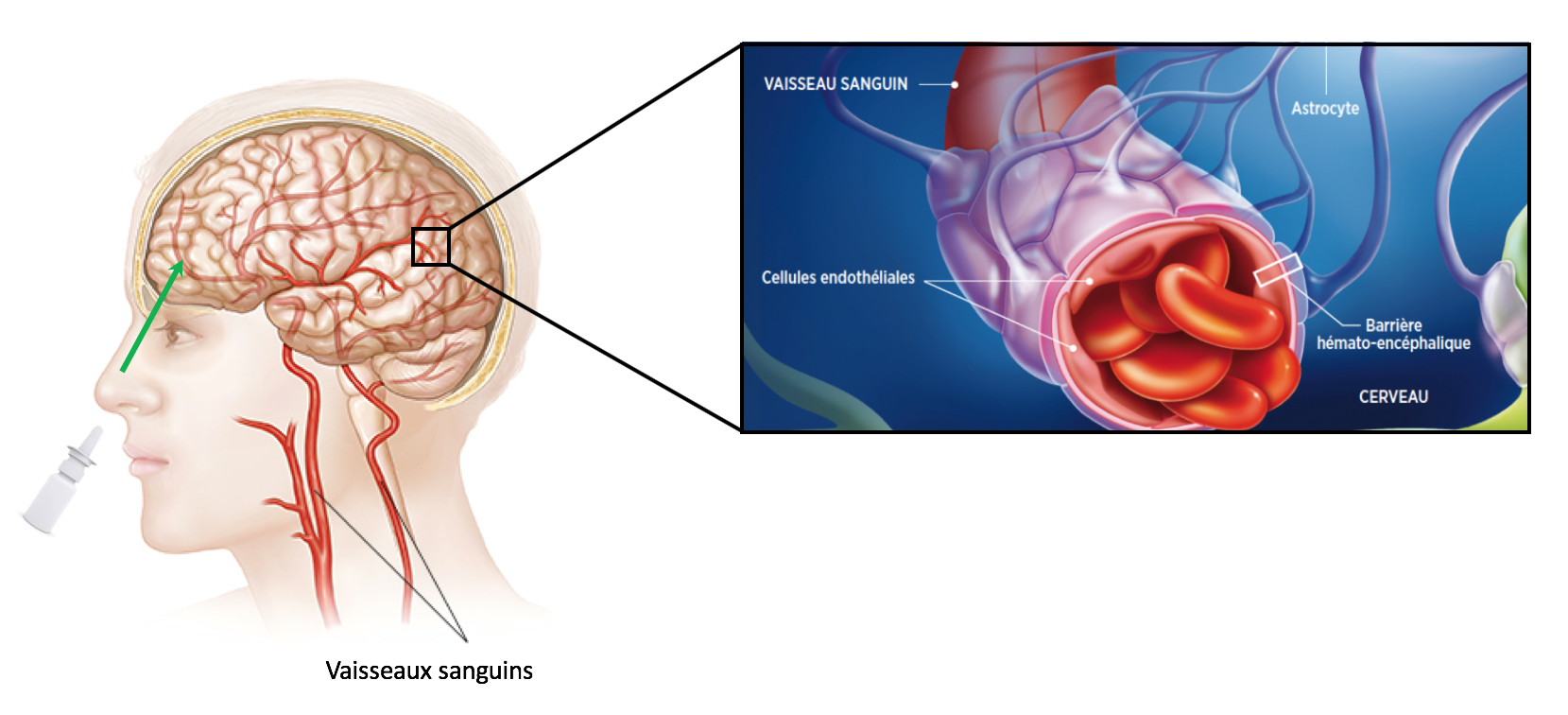Prof. Anne des Rieux, Louvain Drug Research Institute, Louvain: "To keep it short, MS is an inflammatory autoimmune disease that affects the central nervous system (CNS). This means that a person's immune defences attack the myelin sheath which isolates the brain and spinal cord nerves, and plays a major role in the transmission of nerve impulses. Ultimately, the destruction of this sheath causes the neurons to degenerate and many symptoms appear, such as fatigue, pain, eyesight deterioration or urinary problems. At the more advanced stages, patients may suffer from paralysis of one or more limbs or even become completely disabled. Indeed, MS is the top cause of non-traumatic disability in young adults. Although regeneration processes sometimes occur in the early stages of the disease, they are usually ineffective. For this reason, we need to find new drugs that can rebuild the myelin sheath. Many teams and researchers are working to better understand MS, to develop treatments and therapies, but we still have a long way to go. One of the major limitations to treating MS is the very small percentage of drugs that can reach the CNS, which is protected from harmful substances by the physiological barrier known as the blood-brain barrier which also impedes the entry of drugs. It would seem that 98% of the new molecules currently being developed cannot pass this barrier and thus reach the brain.
Adapted from: https://www.saintlukeskc.org/health-library/understanding-cerebral-angiography and https://www.sciencesetavenir.fr/sante/alzheimer-un-probleme-d-etancheite-du-cerveau_28646
 At the Louvain Drug Research Institute (LDRI), our team is focusing on new approaches to deliver drugs more efficiently to the CNS[1]. Our purpose is to reduce inflammation and repair the damaged myelin sheath. Our strategy is to place a molecule of interest on a vehicle approximately one nanometre in size ̶ this is known as nanomedecine ̶ and to administer it nasally. In the case of MS, vehicles are doubly useful, as they not only protect the molecule of interest as it is delivered to the damaged areas, but also target the cells responsible for the protection of the myelin sheath. Moreover, nasal administration is particularly effective as it permits direct access to the brain and therefore avoidance of the blood-brain barrier. "
At the Louvain Drug Research Institute (LDRI), our team is focusing on new approaches to deliver drugs more efficiently to the CNS[1]. Our purpose is to reduce inflammation and repair the damaged myelin sheath. Our strategy is to place a molecule of interest on a vehicle approximately one nanometre in size ̶ this is known as nanomedecine ̶ and to administer it nasally. In the case of MS, vehicles are doubly useful, as they not only protect the molecule of interest as it is delivered to the damaged areas, but also target the cells responsible for the protection of the myelin sheath. Moreover, nasal administration is particularly effective as it permits direct access to the brain and therefore avoidance of the blood-brain barrier. "
[1] https://uclouvain.be/en/research-institutes/ldri/addb.html
